What is Lymphocytes Ratio?
It is the percentage of your total white blood cell count that is made up of lymphocytes. In a standard blood differential (part of a full blood count), the lab reports lymphocytes both in absolute count and as a percentage.
Why does it matter for long-term health and wellbeing?
This ratio offers a lens into your immune system’s “orientation.” A balanced lymphocyte ratio suggests your body is neither overly stressed nor stuck in low immune vigilance. Over time, swings beyond your optimal zone may hint at chronic stress load, low-grade inflammation, or suboptimal recovery states — all factors that subtly influence metabolism, energy, ageing, and your body’s capacity to adapt.
What’s an optimal level of Lymphocytes Ratio?
- Reference (lab) range: 20 % to 40 %
- Vively’s suggested optimal range: ~ 25 % to 35 %
If your ratio sits within that narrower band, it suggests a more balanced immune profile aligned with performance, resilience, and longevity goals.
What influences Lymphocytes Ratio levels?
Many lifestyle and internal factors can shift your lymphocyte ratio, including:
- Chronic stress and sleep disruption — via cortisol and immune regulation pathways
- Acute or low-grade inflammation (e.g. from diet, lifestyle)
- Physical activity (both too little or excessive load)
- Nutritional status (micronutrients, protein intake)
- Ageing and immunosenescence dynamics
- Lifestyle exposures (e.g. smoking, environmental pollutants)
Studies of immune ageing find that the balance of neutrophils and lymphocytes shifts over decades, and that stress accelerates that drift.
What does it mean if Lymphocytes Ratio is outside the optimal range?
- Below ~25 % may suggest that your immune system is under strain or skewed toward rapid-response (innate) pathways — possibly higher day-to-day stress or inflammation burden.
- Above ~35 % (and toward 40 % or more) may hint at overactivity or imbalance in adaptive immune function — for example, more immune “alertness” load or slower resolution of immune stimuli.
Either direction, consistent deviation signals an opportunity to re-examine recovery, stress load, lifestyle, and immune balance before things escalate.
How can I support healthy Lymphocytes Ratio levels?
You can use lifestyle levers to gently guide your lymphocyte ratio toward balance:
- Prioritise rest, high-quality sleep, and circadian consistency
- Use stress-modulation tools: mindfulness, breathwork, structured downtime
- Eat a whole-food, micronutrient-rich diet with anti-inflammatory support
- Moderate and periodise physical activity (avoid chronic overtraining)
- Support gut health and microbiome diversity
- Minimise exposures to toxins, pollutants, cigarette smoke, and chronic low-grade stressors
This information is provided for general health and wellness purposes only and does not replace medical advice.
References
- UCSF Health. Blood differential test: normal ranges for leukocytes.
- Apollo 247. LYM blood test – percentage normal ranges.
- Pellegrino, R. et al. Temporal trends, sex differences, and age-related influence in neutrophil & lymphocyte counts. Immun Ageing (2023).
- Klopack, E. T. et al. Social stressors associated with T lymphocyte ageing. PNAS (2022).
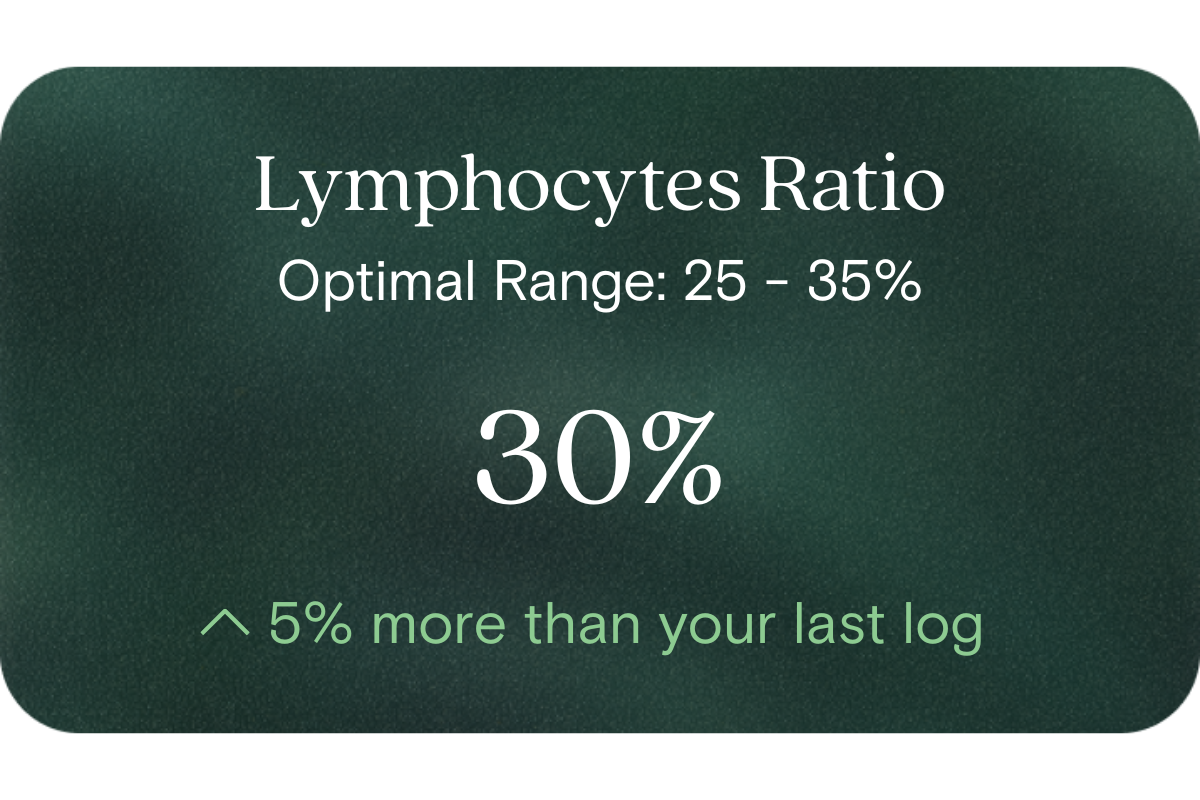











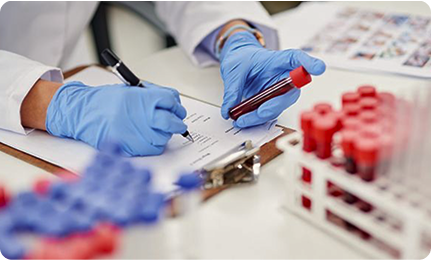
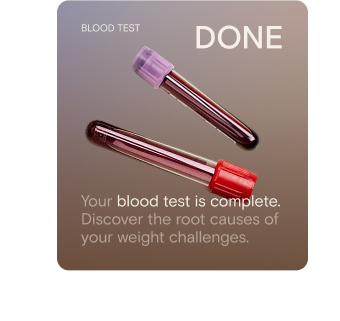
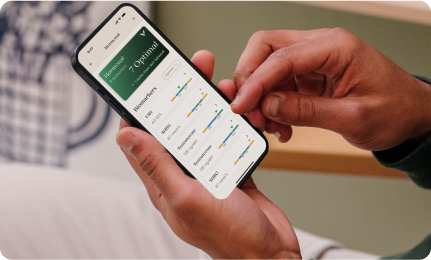
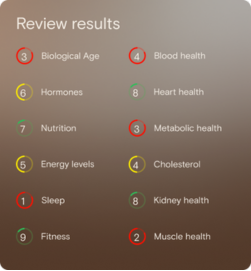

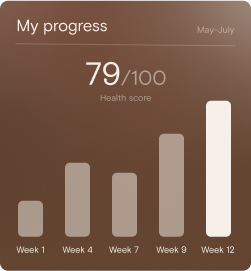


.png)


.svg)

